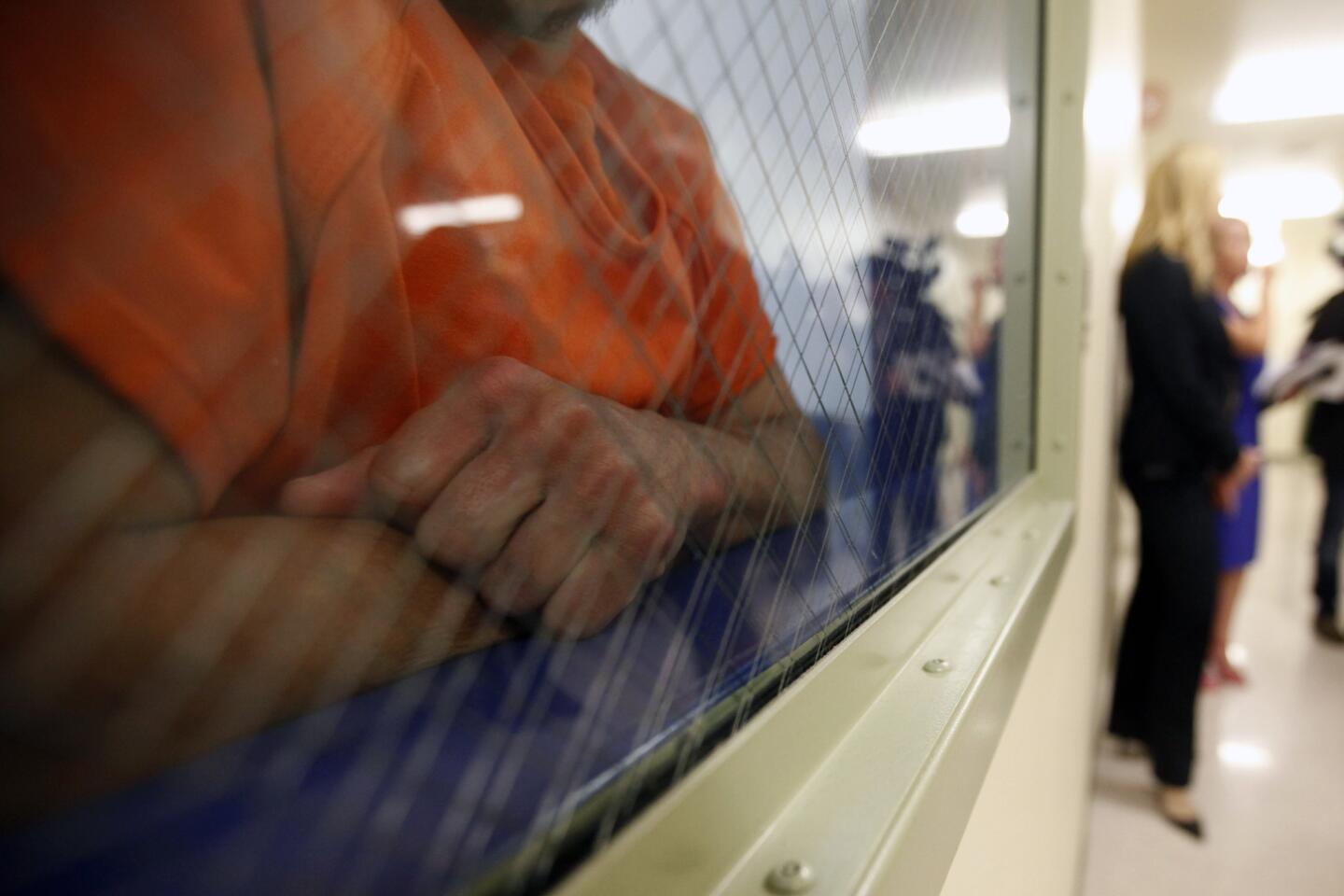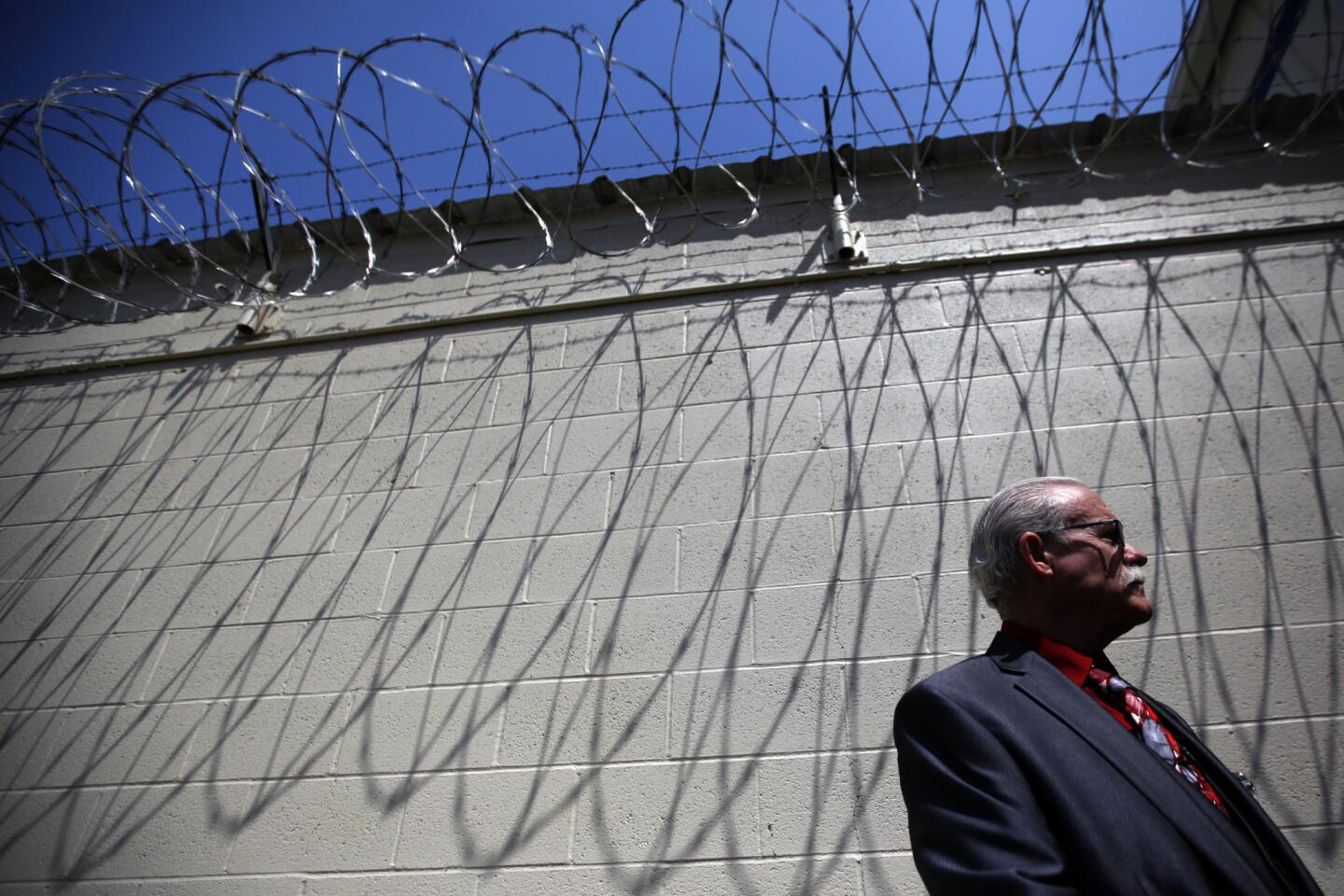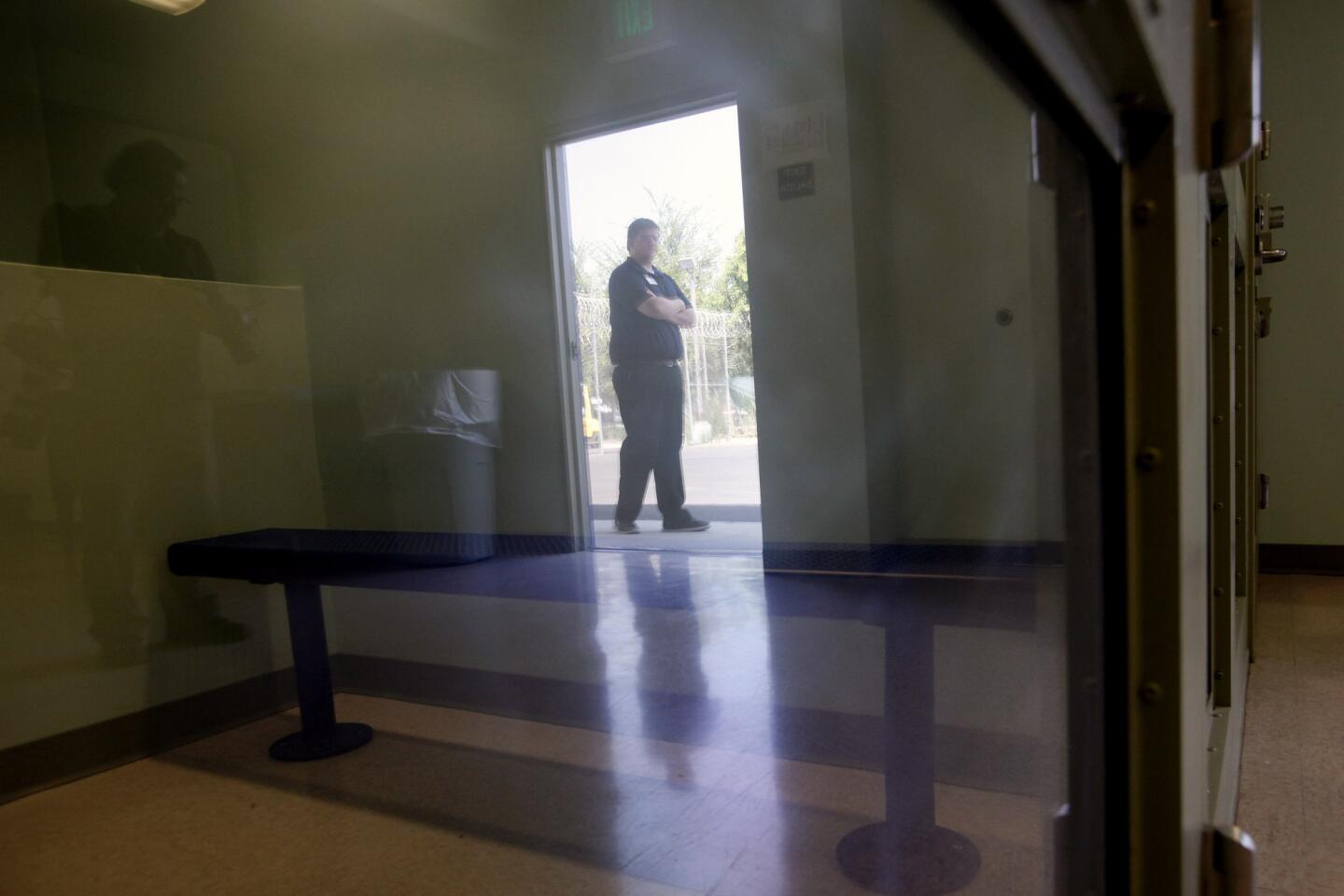Private companies profit from U.S. immigration detention boom
- Share via
reporting from BAKERSFIELD — In the women’s wing of the nation’s newest immigrant detention center, 28-year-old Silia Ramirez sat Thursday writing a letter to her family.
She described her day so far — yoga with another detainee in the morning, chicken fajitas for lunch — as well as her anxiety about the future. Like the 185 others held in the new facility in downtown Bakersfield, which was opened to journalists for a tour Thursday, Ramirez faces deportation.
Even as the number of immigrants caught illegally crossing the U.S.-Mexico border has fallen to the lowest levels since the 1970s, the federal government has increased spending on immigrant detention, filling 14,000 more beds last year than it did in 2006.
Private prison companies such as Geo Group, which owns and manages the new facility, have profited from the boom.
Geo now runs five of the nation’s 10 largest immigrant detention centers, at a cost of roughly $100 per detainee per day. It is expanding a 1,300-bed facility in the high desert city of Adelanto and doubling the size of a family detention center in Karnes, Texas.
U.S. Immigration and Customs Enforcement officials say private companies often do a better and more efficient job of housing detainees than the agency itself or the local jails it sometimes contracts with. They say ample detention space is necessary to house deportable immigrants who have been convicted of crimes, such as Ramirez, who served prison time for a felony conviction. Nearly 90% of the detainees at the new center have criminal backgrounds, said Erik Bonnar, assistant director for detention and removal operations in ICE’s San Francisco field office.
The Bakersfield facility looks more like a suburban office park than a prison, with only a bit of razor wire visible from the road, and a trimmed lawn and blue portico out front. It’s next door to the Kern County Housing Authority. A used car dealership is across the street.
Geo bought the facility in 2010 from another prison company with plans to contract with the state to house prisoners, said James Black, vice president of the western region for Geo Group. But that deal fell through when Gov. Jerry Brown’s realignment plan shifted some prisoners to local custody, he said.
Before it started accepting the first busloads of immigrant detainees last month, Geo spent $10 million to renovate the center, Black said.
Inside, past the metal detectors, the tile floors were spotless and the walls freshly painted — blue in the men’s dormitories, pink in the women’s. Warden Ron Murray, an Army veteran with a handlebar mustache and a shiny three-piece suit, highlighted the activities available to detainees, pointing out an entertainment room with a few video games and a library stocked with religious texts as well as titles by Stephen Hawking and Howard Zinn. Nearly every Spanish-language book had been checked out, the librarian said.
Murray walked past the kitchen, where detainee cooks being paid $1 a day were chopping onions, and a dining room, where others were eating lunch.
Immigrant advocates have complained about the detention center’s distance from the San Francisco immigration courts, where most of the immigrants here have their cases. They say there aren’t enough pro bono immigration lawyers in Bakersfield. Murray showed off several videoconferencing rooms where detainees will be able to communicate with judges remotely.
He also highlighted the facility’s medical unit, where several men were waiting to be seen by a doctor.
Advocates also have criticized Geo for what they say is a history of medical neglect. This month, a Salvadoran man who had been in ICE custody for five years died after being held at Geo’s center in Adelanto. ICE officials said the man, Raul Ernesto Morales-Ramos, 44, had intestinal cancer.
Michael Kaufman, an attorney with the American Civil Liberties Union of Southern California, said Geo should have detected and treated the man’s cancer sooner. Kaufman has written letters on behalf of several Adelanto detainees who he said were not provided necessary medication, surgery and other medical treatment.
“We’ve been deeply concerned about the quality of care at Adelanto,” Kaufman said. “Based on that track record, we’re very concerned about Geo operating a new facility in Bakersfield.”
A spokesman for Geo said that he could not comment on the recent death, but that the company provides “comprehensive, around-the-clock medical services pursuant to strict contractual requirements and national detention standards set by ICE.”
The ACLU has raised concerns about the risk of valley fever, a wind-borne fungal infection found to be prevalent among certain prisoners housed in the Central Valley. In 2013, a judge ordered the state to transfer some African-American and Filipino inmates because they were found to be especially susceptible to the disease.
An ACLU letter asking ICE to stop transferring immigrants to the new facility until the risk has been assessed is being reviewed by the agency’s medical team, said ICE spokeswoman Virginia Kice. She said the threat of valley fever may be reduced because immigrant detainees stay in detention on average just 30 days.
She said a new detention center was needed in the Central Valley after ICE ended its contract about two years ago to lease space at the Kern County Jail.
Although some detainees in the new facility were apprehended locally, others have been transferred there from other parts of the state.
Ramirez, the detainee writing to her family, said she grew up in San Diego. She was taken into ICE custody three weeks ago after she finished her prison sentence. She was ordered deported but has filed an appeal.
During her time at the facility, while other women in her dormitory read from the Bible or watched telenovelas on a flat-screen TV, she had been reflecting on what deportation would mean. She was brought to the U.S. from Mexico as an infant, she said, and has no idea what Mexico is like.
“My family, they’re all Americans,” she said. “In my soul, I’m an American.”
Twitter: @katelinthicum
More to Read
Sign up for Essential California
The most important California stories and recommendations in your inbox every morning.
You may occasionally receive promotional content from the Los Angeles Times.


















